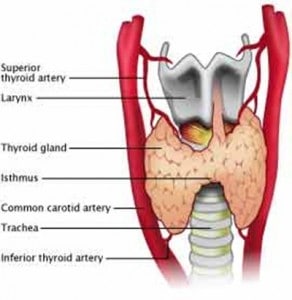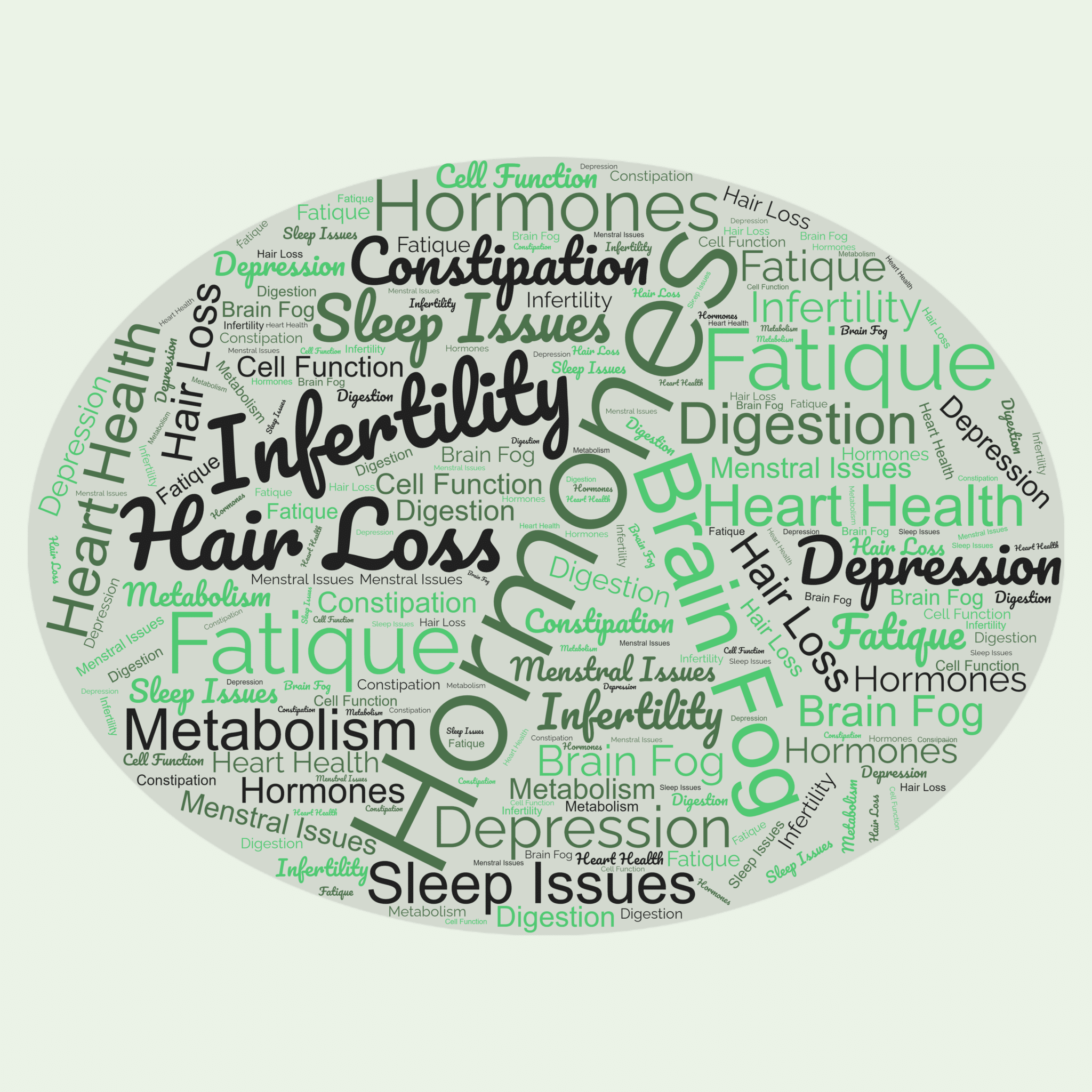Our thyroid, the butterfly shaped organ at the base of our neck is our “master gland.” The thyroid secretes hormones, the main one being Triiodothyronine or T3. This 
Thyroid conditions are increasingly being diagnosed, mainly because the diagnostic criteria are improving. Integrative doctors are evaluating more than just the blood-marker, TSH. They are evaluating TSH, T3Free, T4Free, and thyroid antibodies. By evaluating all of these blood-markers, practitioners are able to get a complete picture of how your thyroid is working.
Thyroid Basics
TSH: thyroid stimulating hormone, this is secreted from the pituitary gland in response to low or high amounts of circulating thyroid. Hyperthyroidism is when the TSH is low and hypothyroidism is when TSH is high.
Free T3: this is the active thyroid hormone circulating in the body.
Free T4: this is the storage thyroid hormone circulating in the body.
Thyroid Peroxidase antibodies (TPO Antibodies) and Thyroglobulin Antibodies (TG Antibodies): these become elevated when there is an autoimmune thyroiditis. Often, TSH will remain within normal, but the antibodies fluctuate thus causing many thyroid symptoms with “normal numbers.”
Common Thyroid Symptoms
Hypothyroidism (high TSH)
- Dry coarse hair
- Loss of eyebrows
- Puffy face
- Enlarged thyoid (goiter)
- Slow heartbeat
- Constipation
- Weight gain
- Brittle nails
- Arthritis
- Cold intolerance
- Depression
- Dry skin
- Fatigue
- Forgetfulness
- Infertility
- Muscle aches
- Heavy menstrual periods
Hyperthyroidism (low TSH)
- Hair loss
- Bulging eyes
- Enlarged thyroid (Goiter)
- Sweating
- Rapid heartbeat
- Warm, moist palms
- Weight loss
- Frequent bowel movements
- Tremor of fingers
- Soft nails
- Difficulty sleeping
- Heat intolerance
- Infertility
- Irritability
- Muscle weakness
- Nervousness
- Scant menstrual periods
What about Hashimoto’s?
This can be hard to diagnose without testing the thyroid antibodies. One might experience all of the symptoms listed above, both hyper- and hypothyroid. This is due to the fact that one’s immune system is attacking the thyroid. This can cause the body to switch from one to the other. Additional symptoms include many gastrointestinal disturbances like IBS, GERD, bloating, and a mix between diarrhea and constipation.
Diet That Can Help With Thyroid Conditions
Below are the thyroid diet that can help to improve your health.
Gluten
If you have an autoimmune condition, you really need to cut out gluten from your diet. Gluten is the protein found in wheat, barley and rye. With high amounts it can cause the body to initiate an attack on the lining of the gastrointestinal system. In turn this produces an increase in mucus production and an overactive immune system within the GI tract. This causes foods to not be broken down completely leading to malnourishment of nutrients. It can also contribute to the occurrence of leaky gut and SIBO (small intestine bacteria overgrowth).
Dairy
Dairy can be a tricky one. Most adults cannot consume large quantities of dairy. Dairy in general can cause an increase in our IGA 
Goitrogens
Cruciferous vegetables like broccoli, cabbage, Brussels Sprouts, kale and cauliflower were labeled as Goitrogens back in the 1950’s. Cruciferous vegetables can block iodine utilization which in turn can cause an iodine deficiency. In the 1950’s this was a cause for concern because the incidence of a goiter was high in America. To solve this, iodized salt was created and goiters virtually disappeared. Cooking these vegetables will break down the iodine blocking agent. So please eat up your cooked cruciferous vegetables.





















